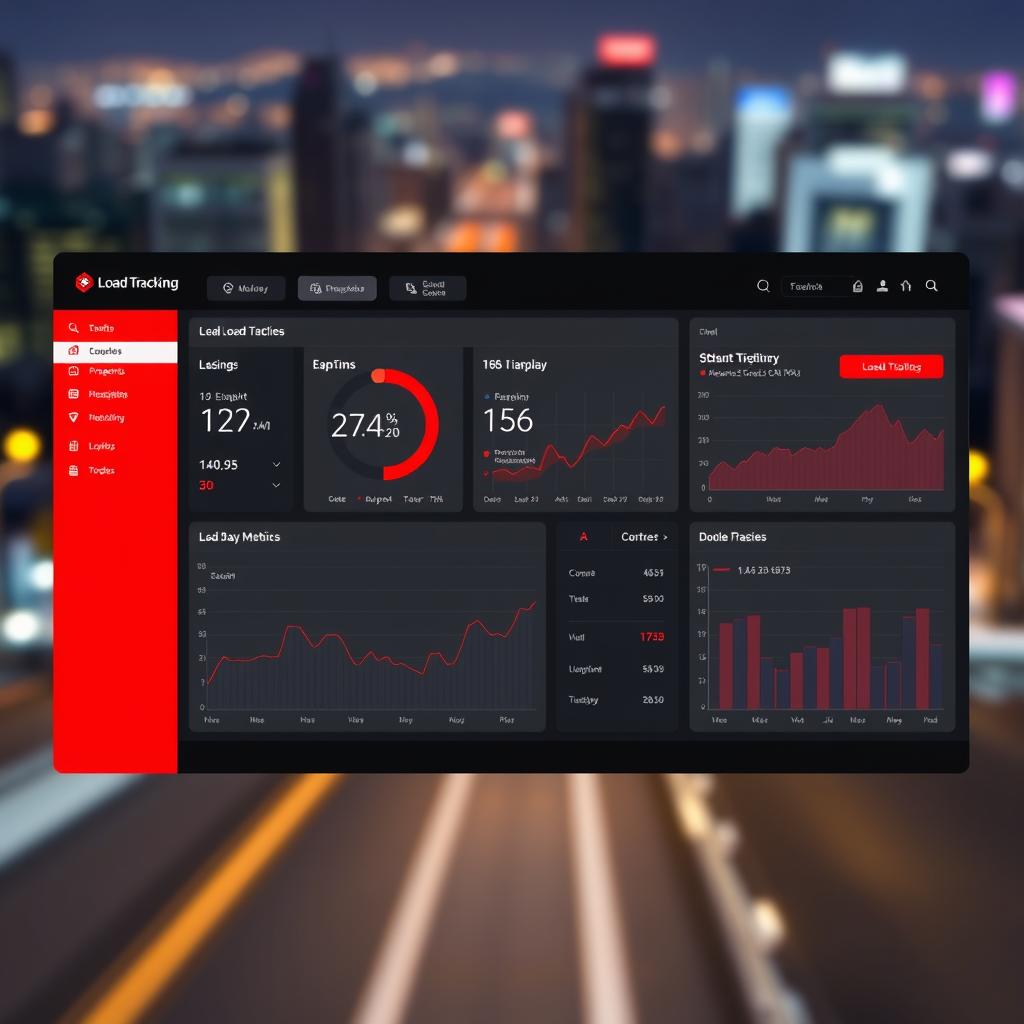Real-Time Load Tracking Solutions Guide: A Comprehensive Overview
In today’s fast-paced logistics industry, the ability to track and monitor shipments in real-time has become essential for success. Load tracking software for American trucks has revolutionized how fleet managers, shippers, and carriers handle their operations. This comprehensive guide will explore everything you need to know about real-time load tracking solutions, from their fundamental features to advanced implementation strategies.
Understanding Real-Time Load Tracking Technology
Real-time load tracking represents a significant advancement in transportation management systems (TMS). This technology enables stakeholders to monitor shipments, vehicles, and drivers with unprecedented accuracy and efficiency. Modern tracking solutions combine GPS technology, cellular networks, and sophisticated software platforms to provide continuous updates on cargo location, condition, and estimated arrival times.
The foundation of effective load tracking relies on three key components:
• GPS-enabled devices
• Cloud-based software platforms
• Mobile applications for drivers and dispatchers
According to the American Transportation Research Institute, companies implementing comprehensive tracking solutions report up to 23% improvement in operational efficiency and customer satisfaction.
Key Benefits of Implementing Load Tracking Solutions
Enhanced Visibility and Control
Real-time visibility allows fleet managers to:
• Monitor vehicle locations 24/7
• Track delivery progress
• Identify potential delays early
• Optimize routes dynamically
Improved Customer Service
Modern tracking solutions enable:
• Accurate delivery time estimates
• Proactive delay notifications
• Self-service tracking portals
• Automated status updates
Operational Efficiency
Implementation leads to:
• Reduced administrative workload
• Better resource allocation
• Improved driver productivity
• Enhanced fleet utilization
Essential Features of Modern Load Tracking Systems
Real-Time Location Updates
Modern systems provide:
• GPS-based location tracking
• Geofencing capabilities
• Route optimization
• Historical route data
Documentation Management
Digital documentation features include:
• Electronic proof of delivery
• Digital bill of lading
• Automated invoicing
• Document storage and retrieval
Analytics and Reporting
Comprehensive reporting tools offer:
• Performance metrics
• Custom report generation
• Data visualization
• Predictive analytics
Integration and Implementation Strategies
System Integration
Successful implementation requires:
• Compatibility assessment
• API integration planning
• Data migration strategy
• Training program development
Best Practices for Deployment
Consider these key steps:
1. Define clear objectives
2. Select appropriate hardware
3. Train staff thoroughly
4. Establish monitoring protocols
5. Implement feedback systems
Advanced Features and Future Trends
Artificial Intelligence and Machine Learning
Modern solutions incorporate:
• Predictive maintenance
• Route optimization algorithms
• Risk assessment tools
• Automated decision-making
IoT Integration
Connected devices provide:
• Temperature monitoring
• Cargo condition tracking
• Fuel consumption data
• Vehicle diagnostics
Security and Compliance Considerations
Data Security
Essential security measures include:
• Encrypted communications
• Access control systems
• Regular security audits
• Backup protocols
Regulatory Compliance
Systems must address:
• ELD mandate requirements
• FMCSA regulations
• Hours of Service (HOS) tracking
• Data retention policies
Cost Considerations and ROI
Investment analysis should include:
• Hardware costs
• Software licensing fees
• Implementation expenses
• Training requirements
• Maintenance costs
The return on investment typically manifests through:
• Reduced operational costs
• Improved customer retention
• Enhanced efficiency
• Decreased insurance premiums
Selecting the Right Solution
Consider these factors when choosing a system:
1. Scalability
• Growth potential
• Feature expandability
• User capacity
2. Support Services
• Technical assistance
• Training programs
• Maintenance support
3. Cost Structure
• Initial investment
• Ongoing fees
• Additional features pricing
4. Integration Capabilities
• Existing systems compatibility
• Third-party integrations
• API availability
Conclusion
Real-time load tracking solutions have become indispensable in modern transportation management. By implementing the right system, companies can significantly improve their operational efficiency, customer satisfaction, and bottom line. The key to success lies in choosing a solution that aligns with your specific needs while providing room for growth and adaptation to future industry developments.
Take action today to transform your operations with advanced load tracking capabilities. Contact our team of experts to discuss your specific needs and discover how our comprehensive tracking solutions can benefit your business. Whether you’re looking to upgrade an existing system or implement a new solution, we’re here to help you navigate the process and achieve optimal results.
Don’t let outdated tracking methods hold your business back. Schedule a consultation with our specialists to learn more about our cutting-edge solutions and start your journey toward enhanced operational efficiency and customer satisfaction.







